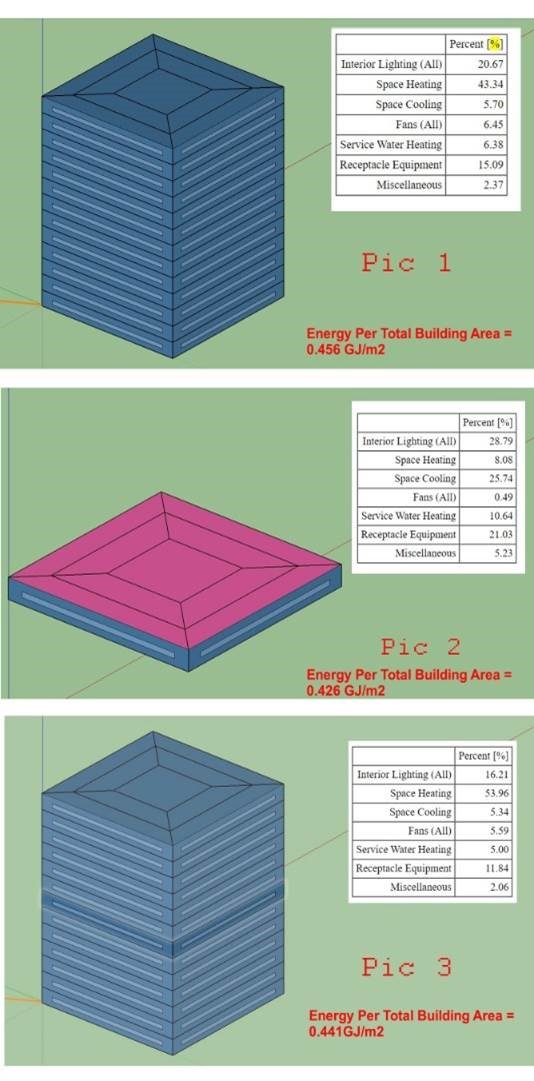Can a one-story sample energy modeling suffice for a large scale building thermal analysis in a parametric work?
I was working on an energy simulation of a 13-story office building by EnergyPlus. The building is located in Calgary, Canada (zone 7) and is conditioned by boiler and chiller systems. Meanwhile, I am preparing the model for parametric analysis of its envelope. The issue arises when I started to compare the thermal behavior of a one-story sample, with adiabatic boundary conditions of both ceiling and floor on the 7th floor, with a full-building energy model breakdown. Although "Energy Per Total Building Area" is relatively ok for the new model, energy breakdowns differ from the initial full model. As you can see from the below picture, for a single-story model, the cooling energy demand is about 25% when comparing with heating demand, which is not the case for a cold climate region.

Pic 1: whole building model Pic 2: the one-story model with adiabatic surfaces Pic 3: one story model analysis when considered in the whole model
I have noticed similar one-story sample analysis (pic 2) in academic journal papers. However, I hesitate whether an adjusted boundary condition is needed in my case.





Hi @Negar, I hope this would help.
@Negar are you using the zone multiplier for Floor 7 to represent all 13 floors? The ground floor is in contact with soil, and the top floor has an exterior roof in contact with outdoor air. Those are different boundary conditions than the other floors in the building, so those should be modeled separately without a zone multiplier attached to them. This would mean that Floor 7 should have a zone multiplier of 11.
hello @Negar
I saw your question today, and I, too, am having difficulty creating buildings and setting measurement parameters. Could you please share this model with me for my case study? It would be extremely beneficial and extremely helpful. Because I am a complete newcomer to this software. My email is kartik.marathe@cubedots.com